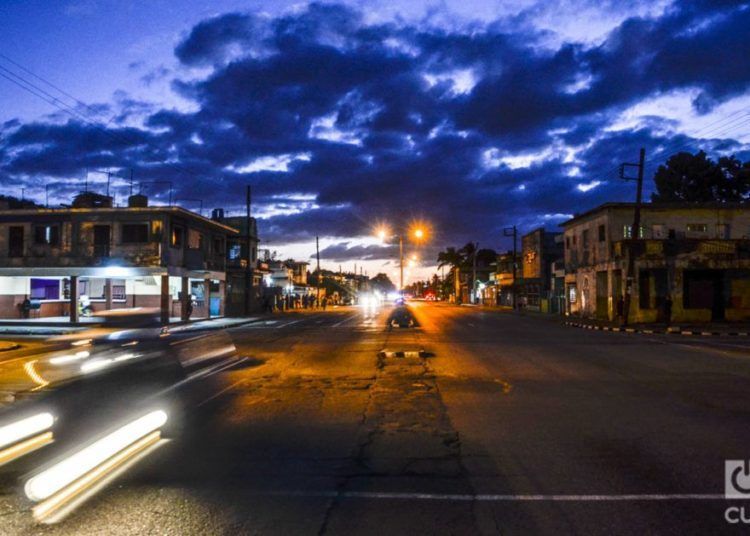Sometimes I think I left. But I have not left. At least not completely. I have stayed, at times entirely. And sometimes only in body, while the rest of me is in other places. Or my body has been anywhere, but I’ve been here. Some parts of me have gone and they have not come back anymore.
It happens to many people. Not only to those born in Cuba. It happens to nine out of 10 people who are or have been emigres; even if it is for a while, even if they don’t feel completely emigres, even if they have dreamed of migrating or are convinced that this was the best way, or the only way.
What doesn’t happen to anyone is the estrangement with respect to the point of departure. If someone tells you a story about the country that runs through your veins and you do not recognize it, did you lose your homeland?
The vision of Cuba is captured by the fatalism of the poles. You hate or love, friend or enemy, inside or outside, with me or against me, immaculate Cuba or rotten Cuba.
That polar system is politically interested, and this is not necessarily avoidable or undesirable. Politics crosses us, it is in all of us. The illusion of being apolitical is the best achievement of anti-democratic politics.
So, yes, the polarization about Cuba is political. As much as the – falsely anti-political – illusion of the American dream, or that Europe is some point of arrival and that in Latin America we haven’t worked enough to deserve it. And, more frequently than one would like, politics is constructed as a polar issue. When each pole is recounted as if it were the entire reality, it turns out to be fiction: the Cuba novel, for example.
Cuba’s reality is not polar; Cuba novels are. Reality is devious, complex, impossible to catch in a single thesis. Cuba is real. But the Cuba novel isn’t, not completely.
The first Cuba novel that I knew was that of state television’s National Newscast. But the biggest awareness about this came later. My interlocutor was a very young man, like me. His eyes were clear and he was politically honest. We met somewhere else in Latin America. He had been in Cuba, in a solidarity brigade. He had done volunteer work in a polyclinic and in a daycare center. He almost did not know Havana, because he preferred the deep Cuba. He spoke to me about my country with a fascination that I came to envy. I, who believed that I was the one who loved it the most, could not understand that sublime, unconditional love. And, at the same time, I could neither subscribe nor deny what that person told me about my own soil.
When the Cuba novel is told by someone whose political views I do not share, the estrangement is easily explained: obviously I do not recognize myself in his/her novel, we are looking at different countries; this person thinks that the world fits in his/her biography; he doesn’t realize that for it to have what it has, it is necessary that many have absolutely nothing; he/she believes that Latin America is violent because people are poor, or that they are poor because people are violent; he/she thinks that freedom is being able to do what each one wants; according to him/her, women are to blame for machismo and blacks are to blame for racism. I disagree. Then we have different views about Cuba, as we would see different sunsets even if we were side-by-side.
But if with whom I talk I share a vision of the world, aspirations for the future, a sense of justice, then my estrangement from his/her Cuba novel is more difficult to process.
A part of the world’s honest people from the left (I leave out those who disguise themselves for their own benefit) build another Cuba novel. In it, Cuba is pristine, it only enlightens, it only teaches, it only gives hope, it only celebrates, it only suffers what others make it suffer, but it never feels distressed. In that Cuba only clean air is breathed and the “vice” is external and whoever takes it on, flees or is expelled.
I don’t recognize that Cuba. I have never lived there. I have never seen it, nor do I have a record of it. They tell me that story, but I am not part of it.
What can I do with that story?
It took me a bit of a long time to understand that every fight needs a horizon and that in a complicated situation it is always better to have a compass. If that compass has its own name, the horizon is brighter. And opting for a horizon means choosing to make mistakes with it, to the ultimate consequences. For a part of the world’s – honest – people from the left that compass is called Cuba.
Once that is understood, one wonders if it is wise to tear a page from that novel or cross out some things. Who am I, after all, to destroy a referent, catalyze a doubt when there is so much to do in the world? Do I have that right?
Yes, I have that right.
The Cuba narrated by those who need a compass of justice, may be the abyss of the real Cuba. And it can be so because it prevents seeing that in the real Cuba there is also injustice and it doesn’t only come from the outside. It not only welcomes, it also expels. It needs being shaken, buffeted. The real Cuba has its own factory of pollution and sometimes drowns. It is a memorandum of how difficult it is to find a compass and a horizon, and it survives its own crisis and those imposed on it.
The real Cuba is also that of its people, inside and outside: the one that inspired so many. It is the choir, as diverse as in all countries. The real Cuba is not as exceptional as we are told in the Cuba novels. It is the one we are writing, all of us, with imperfect handwriting, the one that sometimes the powers from inside and outside are not allowed to write about and which we persist in writing.
The compass of the pristine Cuba is my downfall; it is the impossibility of building a different one, in many voices. A Cuba that belongs to all the people who, being anywhere, stay inside. If we do not do this, we lose our homeland.












